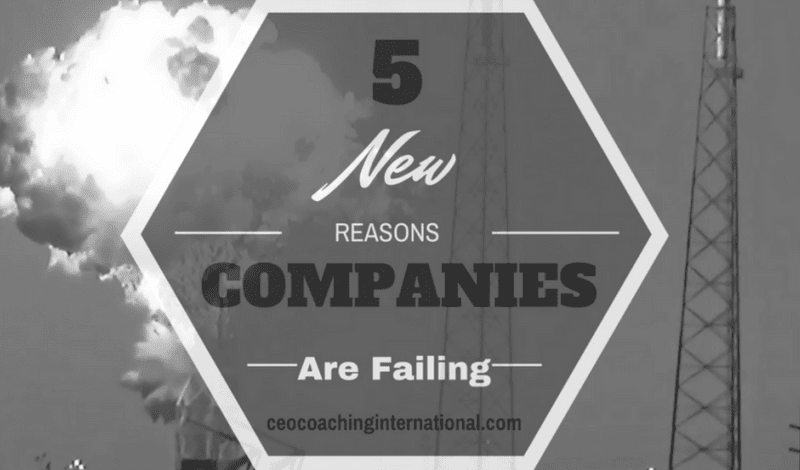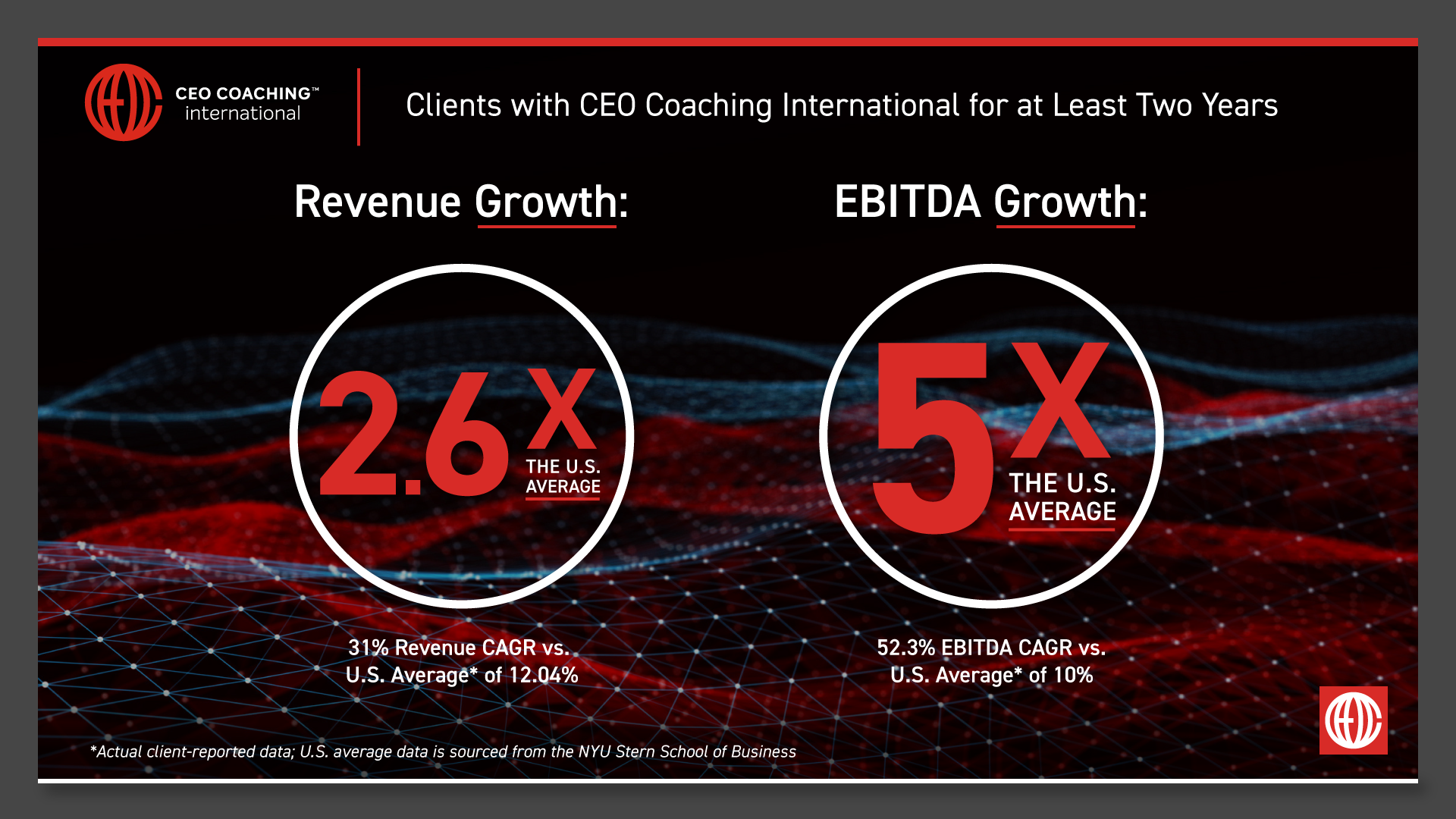
Bloomberg research cites that 8 out of 10 new companies fail within 18 months of launching. Business experts from Forbes estimate the top five reasons businesses fail as not knowing their customers, lack of differentiation, bad marketing, leadership problems, and cash shortages. However, in my work coaching top entrepreneurs, I’ve encountered a trend of emerging challenges causing even large companies to struggle.
These new hurdles require flexible thinking and the ability to make decisions quickly. Today’s successful leaders create teams that are empowered to take advantage of new opportunities as they come up. Even well-established companies who aren’t adapting to change are falling behind. As our marketplaces become more competitive, here are the new ways businesses are failing:
They Can’t Keep Talent
The Millennial workforce has given way to a revolving door of talent. Today, it’s socially acceptable to change companies every two years. In fact, many Millennials believe the only way to earn long-term salary growth is to constantly be shopping for a better deal. This creates a drag on the companies that invest in hiring, training, and replacing them. Refreshing your talent pool every few years adds recruiting, human resource, and productivity costs that put a strain on profitability.
Experts expect the lack of long-term loyalty to only increase in the future. Employers who are looking to retain Millennials must create a competitive workplace. Start by understanding what Millennials want in a job: meaningful work, feedback, technology, freedom, and fun. They thrive under conditions where they’re empowered to solve interesting problems and are able to use technology to work remotely or on their own schedules.
Companies who offer work environments that appeal to the Millennial spirit find greater than average employee loyalty. However, managers first need to align employee incentives with the goals of the company to reduce the risk of freeloaders. Consider putting an equity incentive plan in place or tying a portion of pay to company performance.
Communicate your firm’s vision so employees are passionate about the importance of their work. Try allowing teams to work from home, then use office space and equipment savings to pay over-market salaries and retain your top performers.
They Get Disrupted
The startups that are revolutionizing their industries and making billions often take their competitors by surprise. Disruptors like Uber, Dropbox, and Pinterest came out of nowhere and took significant market share in a few short years. New disruptors are no longer black swans, but everyday occurrences. Companies today must anticipate and prepare for disruptions in their industry.
In the 1920’s, the average lifespan of a company on the S&P 500 was 67 years. Today, it’s about 15. It is critical to prepare for the future by investing in your own disruption strategy. Use our Disrupt or Die Infographic (https://www.ceocoachinginternational.com/tag/disruptors/) to become a disruptor in your industry and recognize the changes taking place in the competitive landscape.
A textbook example of failure by disruption is Kodak, whose engineers invented the first digital camera in 1975, but resisted moving towards digital in an effort to protect their film sales. They remained in denial of the digital revolution for decades, as their competitors grew digital photography online and through social media. In 2012, as Instagram was sold to Facebook for $1 billion, Kodak filed for bankruptcy after 131 years in business.
They Are Generalists
As our global economy and knowledge base grows, so does specialization. Doctors, personal trainers, restaurateurs, and even public schools have increasingly specialized in recent years. Companies that cast their nets too wide end up not reaching deep enough to capture customers.
Consumers today want to work with a specialist with unique expertise who understands them. Consider the specific niche you serve and embrace what you do best. Make sure your prospects know what makes you uniquely suited to solve their problems. When you feel the urge to be all things to all people, resist.
One of my coaching clients created a business in 2003 called Grasshopper, the Entrepreneur’s Phone System. A decade later, they were facing stiff competition from larger companies, including RingCentral and J2, with more extensive product offerings. My client’s instinct was to expand their services in an effort to compete. In a counterintuitive leap of faith, we doubled down on their core competency: virtual voicemail. Last year, Citrix purchased Grasshopper for $170 million due to their unique specialization.
They Don’t Share
Businesses large and small are benefitting from the sharing economy, which is the emergence of shared resources from transportation (Lyft), to lodging (AirBnb), to professional services (TaskRabbit). While the concept isn’t new, as it began during the agricultural revolution, it has made its way into new industries lately.
If you don’t think your company needs to take advantage of sharing because you’re large enough have your own in-house technology, development, or customer service departments, think again. While you maintain large departments across functions, your competitors are outsourcing and cutting costs. The sharing economy is booming because of the benefits it offers: a better result at a lower cost without distracting your team.
Small companies are already benefiting from the sharing economy, but big companies may have more to gain by outsourcing larger departments. If something is not within your core competency, consider taking advantage of the sharing economy. You’ll free up resources because you won’t have to hire, train, and supervise groups of unrelated specialists. The result is a company that is laser-focused on what they do better than anyone else.
They’re Perfectionists
One of my clients often speaks to his team in terms of who has the highest IQ in the room. He doesn’t care about their Intelligence Quotient, he cares about what they get done, or their Implementation Quotient. Great ideas are worth nothing if your team can’t execute them before someone else does. But the antidote to implementation is perfectionism. Entrepreneurs concerned with launching perfect products get outpaced by competitors.
Consumers today expect new products and software to contain a few glitches and bugs. In Lean Startup, Eric Ries encourages entrepreneurs to build inexpensive and cheap versions of their ideas and launch them quickly. By testing products directly with users, companies get feedback sooner that they can use to improve. Perfectionism keeps us from succeeding, and in some cases, failing quickly and leads to expensive and time-consuming projects that haven’t been vetted by users.
Today’s leaders are challenged by new and unique threats. Successful entrepreneurs prioritize business planning to understand and recognize the threats that are most dangerous to their companies. To learn more about identifying and avoiding the emerging risks to your business, join our newsletter for weekly tips, check out our podcast, or read our book, Make Big Happen.
About CEO Coaching International
CEO Coaching International works with CEOs and their leadership teams to achieve extraordinary results quarter after quarter, year after year. Known globally for its success in coaching growth-focused entrepreneurs to meaningful exits, CEO Coaching International has coached more than 1,000 CEOs and entrepreneurs in more than 60 countries and 45 industries. The coaches at CEO Coaching International are former CEOs, presidents, or executives who have made BIG happen. The firm’s coaches have led double-digit sales and profit growth in businesses ranging in size from startups to over $10 billion, and many are founders that have led their companies through successful eight, nine, and ten-figure exits. Companies working with CEO Coaching International for two years or more have experienced an average revenue CAGR of 31% (2.6X the U.S. average) and an average EBITDA CAGR of 52.3% (more than 5X the U.S. average).
Learn more about executive coaching | Meet our world-class coaches





